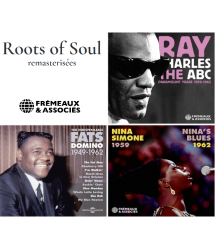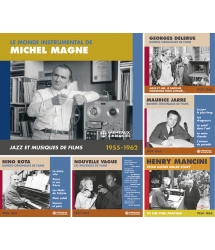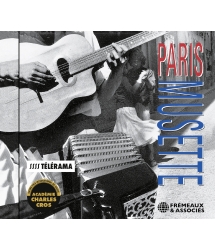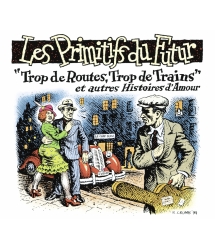For the first half of the 20th century the accordion-based music known as bal-musette was more or less the musical soundscape of Paris. The style, which was created by Emile Vacher, eventually became a Parisian cliché, but it has undergone a bit of a revival in recent years. In 1990, a group decided to pay tribute to the great Gypsy waltzes, and Paris Musette, the resulting album, won prestigious prizes in France. The 23 tracks feature such French masters of the accordion as Marcel Piazzola, Marc Perrone, Jo Privat, and Richard Galliano, sometimes playing in tandem and always backed by the rhythmic guitar of Didi Duprat, the last of the great exponents of the musette guitar. Interspersed between the waltzes are a few tangos, a mazurkas, and three tracks with vocals. Although musette was originally derived from from the cabrette music of the Auvergne Region, this approach to the form shows an urbane sophistication which can proudly stand nexte to other musical genres from modern-day Paris. Les Primitifs du Futur has a paradoxal name, but it’s one that that fits. The group’s intent is to create a sort of archeo-futuristic music by making the past new again. Taking as their basis musette (probably the closest thing to blues that France has produced) Dominique Cravic and friends set out to revive the Paris of the 30s by cfreating a form of world musette, one which draws on blues, scat jazz, chanson, and other genres. On this album, which was recorded in 1994, there is actually very little accordion, which is the main difference between Trop de routes…and the group’s more recent album from 1999. the vocals are accompanied by guitar, harmonice, Dobro, clarinet,xylophone, saw (on one track), banjo, and ukulele (as played by the group’s most famous member, American cartoonist R. Crumb). Both of the group’s CDs feature beautiful R. Crumb artwork (with more in the 24-page booklet) and both are works of considerable originality and charm.
Paul-Emile COMEAU – DIRTY LINEN
Paul-Emile COMEAU – DIRTY LINEN












